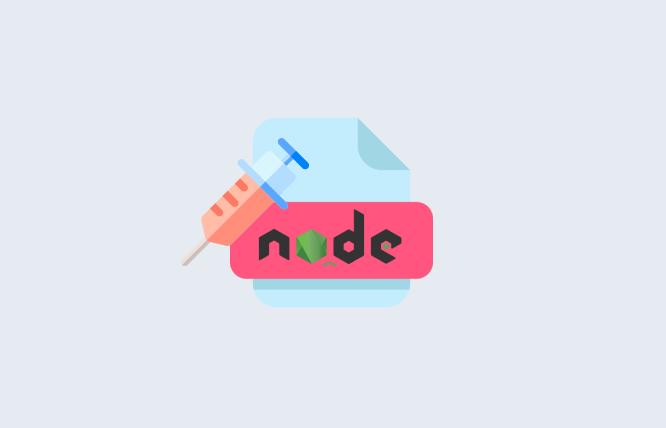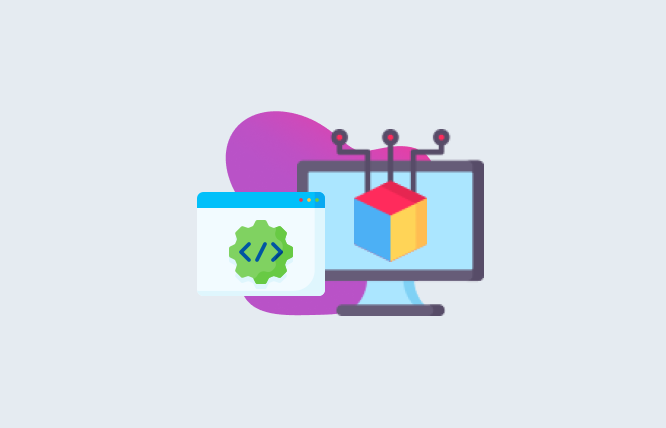Best CRM for Small Businesses: Affordable and Effective Solutions
In this article we will discuss the top 10 CRM platforms that are great for startups and the benefits they can offer your business in the early years.
CRM solutions are considered one of the best for businesses looking to reach revenue goals. According to studies, CRM is the fastest-growing software with 65% of companies integrating CRM solutions in their first 5 years of business. While CRM software has a slew of benefits,it can often be expensive, especially when you are just starting your business.
Top 10 CRM Platforms for Startups
Vtiger
Vtigecr CRM offers a comprehensive suite of sales, marketing, and customer service features designed for small and medium-sized businesses.
Benefits for Startups: Its all-in-one approach is ideal for startups looking to streamline operations and improve customer relationships without investing in multiple tools.
| Pros | Cons |
Comprehensive suite of features | Can be overwhelming for small teams |
All-in-one approach | Initial setup may be complex |
Customisable to fit business needs | Requires training to utilise fully |
Flowlu
Flowlu is a versatile CRM that combines project management, invoicing, and collaboration tools with customer relationship management features.
Benefits for Startups: Its integration of project management and CRM functionalities makes it a great choice for startups needing to manage projects and customer data in one place.
| Pros | Cons |
Integrates project management and CRM | Interface can be less intuitive |
Affordable pricing | Limited third-party integrations |
Comprehensive feature set | Can have a learning curve for new users |
Zoho CRM
Zoho CRM is part of the extensive Zoho suite, offering powerful sales automation, marketing automation, and customer support features.
Benefits for Startups: Zoho’s scalability and integration with other Zoho apps make it perfect for startups aiming for growth while keeping costs manageable.
| Pros | Cons |
Scalable for growth | May require customisation to fit specific needs |
Integrates well with Zoho ecosystem | Advanced features can be expensive |
User-friendly interface | Can be overwhelming for small businesses |
HubSpot
HubSpot CRM is known for its user-friendly interface and robust inbound marketing tools.
Benefits for Startups: Its free tier is incredibly comprehensive, providing startups with essential CRM features at no cost, with the option to scale up as needed.
| Pros | Cons |
Free tier available | Advanced features can be expensive |
User-friendly interface | Some features may require paid add-ons |
Comprehensive marketing tools | Customisation can be limited in free tier |
Capsule
Introduction: Capsule CRM is a simple yet effective tool that focuses on ease of use and integration with popular business apps.
Benefits for Startups: Its straightforward design is ideal for startups looking for an uncomplicated CRM solution that integrates seamlessly with their existing tools.
| Pros | Cons |
Simple and intuitive interface | Limited advanced features |
Easy integration with other apps | May not be suitable for larger enterprises |
Affordable pricing | Customisation options are limited |
Freshsales
Introduction: Freshsales by Freshworks offers an intuitive interface and powerful sales automation features.
Benefits for Startups: Freshsales’ emphasis on AI-driven insights and ease of use helps startups manage their sales processes efficiently and make data-driven decisions.
| Pros | Cons |
AI-driven insights | Higher tiers can be pricey |
Intuitive and user-friendly | Some users report occasional bugs |
Strong automation features | Limited integrations in lower tiers |
Folk
Folk CRM is designed for simplicity and flexibility, focusing on managing contacts and relationships effectively.
Benefits for Startups: Its user-friendly approach makes it a great choice for startups needing a straightforward CRM without the complexity of larger systems.
| Pros | Cons |
Flexible and user-friendly | Lacks some advanced CRM features |
Simple and effective for contact management | Limited integration options |
Affordable pricing | May not scale well for larger businesses |
Kommo (formerly amoCRM)
Introduction: Kommo is a CRM with a focus on messaging and sales automation.
Benefits for Startups: Its strong integration with messaging apps like WhatsApp and Facebook Messenger is perfect for startups that prioritise direct communication with customers.
| Pros | Cons |
Strong messaging integration | Can be complex to set up |
Focus on sales automation | Limited customisation options |
Good for direct customer communication | Higher pricing for advanced features |
Salesmate
Salesmate CRM provides a comprehensive suite of sales automation, marketing automation, and customer support features.
Benefits for Startups: Its affordability and feature-rich platform make it suitable for startups looking to enhance their sales processes without breaking the bank.
| Pros | Cons |
Affordable pricing | Some users report occasional bugs |
Feature-rich platform | Limited customisation for advanced needs |
Easy to use | Integration options could be improved |
Nethunt
Nethunt CRM integrates seamlessly with Gmail, providing a powerful CRM solution within your email inbox.
Benefits for Startups: Its seamless integration with Google Workspace is ideal for startups that already rely on Gmail for communication, making CRM adoption seamless.
| Pros | Cons |
Seamless Gmail integration | Limited features outside email integration |
Easy to use for Gmail users | Not suitable for businesses not using Google Workspace |
Affordable pricing | Limited scalability for larger businesses |
Why Does Your Startup Need a CRM?
Startups need a (CRM) system to streamline and enhance their interactions with customers. Here are several reasons why a CRM is crucial for startups:
Centralised Customer Data
Startups often manage multiple customer touchpoints, and a CRM centralises all customer data in one place. This consolidation helps in maintaining accurate and up-to-date information, ensuring that every team member has access to the same customer details.
Improved Customer Service
A CRM system enables startups to track customer interactions and preferences, allowing for more personalised and efficient customer service. It helps in promptly addressing customer issues and inquiries, thereby improving customer satisfaction and loyalty.
Efficient Sales Process
Startups can use CRM to manage and streamline their sales processes. It helps in tracking leads, monitoring the sales pipeline, and automating routine tasks, allowing sales teams to focus on closing deals and nurturing relationships.
Enhanced Communication
CRM systems facilitate better communication within the startup. Team members can easily share information, track interactions, and collaborate on customer-related activities, leading to more cohesive and effective teamwork.
Data-Driven Decisions
CRM systems provide valuable insights and analytics on customer behavior, sales performance, and marketing campaigns. Startups can leverage this data to make informed decisions, refine their strategies, and identify opportunities for growth.
Scalability
As startups grow, their customer base and interactions increase. A CRM system is scalable, allowing the business to manage a growing number of customers and data without losing efficiency or effectiveness.
Marketing Automation
CRMs often include marketing automation tools that help startups run targeted campaigns, track their effectiveness, and nurture leads through the sales funnel. This automation saves time and ensures consistent engagement with prospects and customers.
Customer Retention
By maintaining detailed records of customer interactions and preferences, a CRM helps startups develop strong, long-lasting relationships with their customers. This focus on customer retention is crucial for sustainable growth and success.
Cost Efficiency
Investing in a CRM can be cost-effective for startups in the long run. It reduces the need for manual data entry, minimises errors, and improves overall productivity, leading to better resource allocation and cost savings.
Competitive Advantage
In a competitive market, startups need every advantage they can get. A CRM system helps in providing superior customer service, executing more effective marketing strategies, and maintaining strong customer relationships, giving startups a competitive edge.
Conclusion
CRM plays a crucial role in improving sales and reaching revenue goals. With the help of simple tracking and data analytics, you will not only be able to monitor your performance but also improve it with the help of analysed data. our business can make better business decisions.
If you are looking for a customised CRM system that is designed to specifically cater to your business, reach out to us, we got you covered. Contact us today for a free consultation.
Frequently Asked Questions
A CRM (Customer Relationship Management) system helps small businesses manage interactions with current and potential customers. It streamlines processes, improves customer service, and boosts sales by organising customer information, tracking interactions, and automating various tasks.
Small businesses should look for features such as contact management, sales automation, customer support, marketing automation, reporting and analytics, mobile access, integration with other tools, and scalability.
Yes, many CRM systems offer affordable pricing plans designed for small businesses. Some even provide free versions with various essential features, making it accessible to companies with limited budgets.
A CRM improves sales by providing insights into customer behaviour, tracking sales activities, automating follow-ups, managing leads, and identifying opportunities for upselling or cross-selling. This helps sales teams work more efficiently and close deals faster.
Using a CRM for customer service helps businesses provide prompt and personalised support by tracking customer interactions, managing tickets, and storing customer information in one place. This results in improved customer satisfaction and loyalty.
A CRM assists in marketing by segmenting customers, automating email campaigns, tracking campaign performance, and analysing customer data to create targeted marketing strategies. This increases the effectiveness of marketing efforts and improves ROI.
Have questions or feedback?
Get in touch with us and we‘l get back to you and help as soon as we can!





